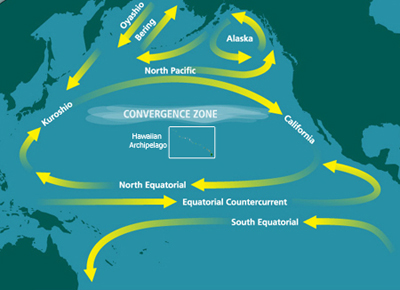raharris1973
Well-known member
Right after the swearing in of Theodore Roosevelt as President in September 1901, the US lower 48 states and territories, and newly acquired Puerto Rico, teleports over to a big patch of land free northwest-central Pacific between Japan, Alaska and Hawaii.
Florida ends up just west of Midway island San Francisco is about 200 miles northeast of Tokyo. Puerto Rico is deposited southwest of the Hawaiian islands.
How does the US adapt to its new position fully in the Pacific, and so much closer to East Asia? How does the USA deal with Russo-Japanese tension, the decay of China and eventual revolution, and the affairs of Southeast Asia and Oceania?
How is trade and immigration affected with the US now such a further trip from Europe? More distance boosts costs, but supply relationships had been established and chain migration had become habitual.
How much does the US, which is now an easily circumnavigable island, care about an Isthmian canal? If it loses a critical mass of interest, do any other international players fill the vacuum?
What changes, if anything, with regard to Filipino counterinsurgency and governance, and what was in OTL a pro-Japanese attitude that was well disposed towards a Japanese annexation of Korea?
Florida ends up just west of Midway island San Francisco is about 200 miles northeast of Tokyo. Puerto Rico is deposited southwest of the Hawaiian islands.
How does the US adapt to its new position fully in the Pacific, and so much closer to East Asia? How does the USA deal with Russo-Japanese tension, the decay of China and eventual revolution, and the affairs of Southeast Asia and Oceania?
How is trade and immigration affected with the US now such a further trip from Europe? More distance boosts costs, but supply relationships had been established and chain migration had become habitual.
How much does the US, which is now an easily circumnavigable island, care about an Isthmian canal? If it loses a critical mass of interest, do any other international players fill the vacuum?
What changes, if anything, with regard to Filipino counterinsurgency and governance, and what was in OTL a pro-Japanese attitude that was well disposed towards a Japanese annexation of Korea?

